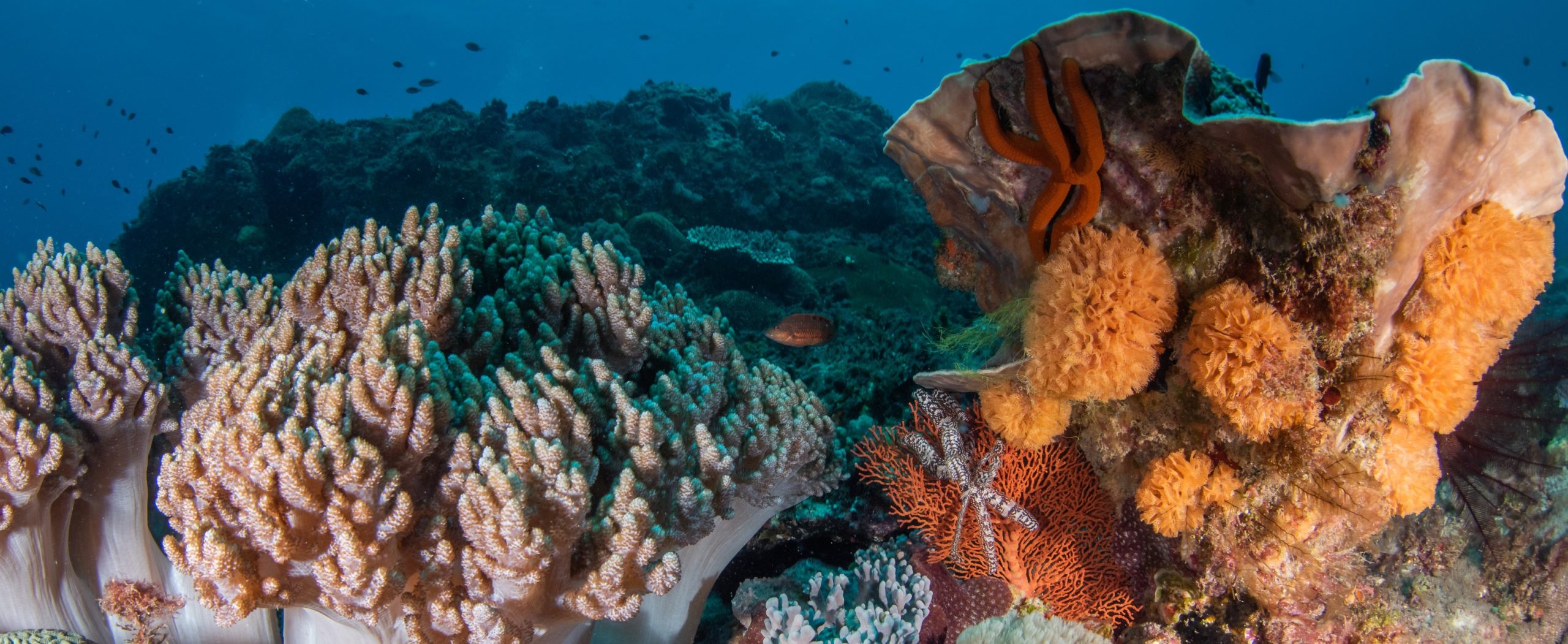Aim: Marine protected areas (MPAs) are increasingly implemented to conserve or restore coral reef biodiversity, yet evidence of their benefits for enhancing coral cover is limited and variable.
Location: 30 MPAs worldwide and nearby sites (within 10 km).
Taxa: Cover of key functional groups for coral (total, branching, massive and tabular), and algae (total, filamentous, foliose) and total biomass of reef fish trophic groups (excavator, scraper, browser, higher carnivore).
Methods: We used a global dataset obtained using standardized survey methods at 465 sites associated with 30 MPAs in 28 ecoregions to test the effects of five key MPA attributes (>10 years old, well-enforced, no-take, large and isolated) on coral cover, algal cover and reef fish biomass. We also tested the direct (reducing disturbance by human activities) versus indirect pathways (increasing grazing potential through recovering populations of herbivorous fishes) by which MPAs can influence coral and algal cover.
Results: Only well-enforced, no-take and old (>10 years) MPAs had higher total coral cover (response ratio 1.08–1.19×) than fished sites, mostly due to the increased cover of massive coral growth forms (1.34–2.06×). This effect arose through both the direct influence of protection and indirect benefits of depressed algal cover by recovering herbivorous fish biomass. Neither the direct (standardized coefficient = 0.06) nor indirect effects (standardized coefficient = 0.04) of no-take protection on coral cover were particularly strong, likely reflecting regional differences in fishing gear, targeted species and trophic webs.
Conclusions: MPAs promote the persistence of some functional groups of corals, and thus represent an important management tool, globally.
